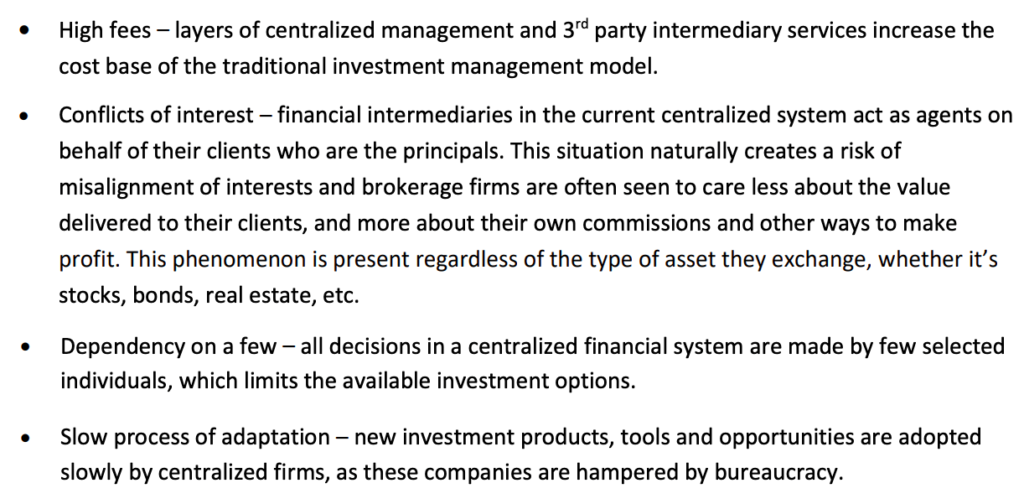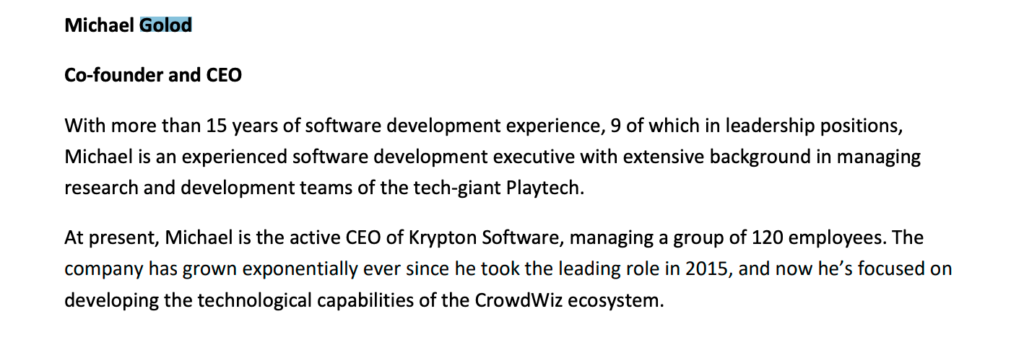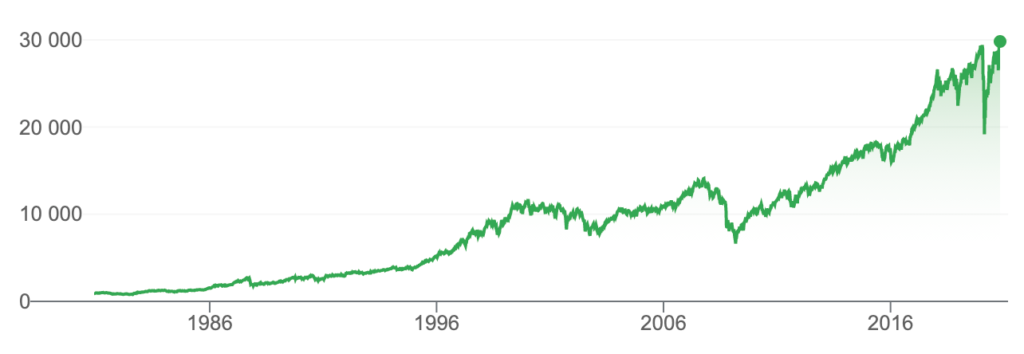Is there really an advantage of making an investment decision based on the opinion of the many? Is it better to make trades based on your own research or just invest into S&P 500 index and wait for your capital to grow? Or may be its better to keep your money in the bank and avoid the investments all together?
Where would you find answers to all these fundamental questions? That’s right, you know where to find them – you are an early investor into CrowdWiz and people who founded this amazing project have weighted all the pros and cons and they know the answers for sure!
And there is a place to look for the info: the White Paper! Well, let’s have a look.
In the paper you will find a description of the problem that investors face today that CrowdWiz will happily solve:

Also the challenges they face solving the problem:

The Paper will briefly mention the solutions:

You will also find the list of respectable academics in trading and investing that have founded this amazing project:


.. and some other defendants in Tradologic criminal case with hundreds of victims of fraud. By the way they strangely forget to mention here that their most recent place of work is Tradologic Solutions / GFS
There is a lot of other boring info on the products the project is about to launch: WizApp, WizExchange, WizFund, and a dozen other Wiz* things that make very little sense and poorly described. You will find a very brief description of architecture, milestones, technology, market size and competitors.
What you will not find in the Paper is the answers to our fundamental questions. Why the investment decisions of the many is better than a decision of one expert? How will CrowdWiz function in every detail, how the votes will influence investments? Will the votes be weighed against the amounts of investments of the voters? Are the voters required to make any investments at all? What theory justifies the assumption that the mechanics of the project will actually work?
You will find pretty much nothing that you would expect from an ICO WhitePaper. And there is a reason for this.
Ilan Tzroya and Micha Golod never intended to have a working product, the only purpose for CrowdWiz was to get the money from investors, spend 50k for some silly product that will never work, pump his rep with another marketing success and be done with it.
The white paper here is just a ticked checkbox in todo list separating Ilan and Micha from millions of dollars in crypto currency.
But let’s try to think about the subject of the matter. Does crowd investing actually work?
This is very easy to answer apparently.
First we need to determine wether or not the stock market, forex or any other investment strategy is a game of skill or a game of chance. If it is a game of chance then a single monkey making the investment decisions for you is no worse than 1000 investment experts. The outcome of your investments will depend on chance rather than the skill of the decision makers.
This may sound weird, but that’s how it is in the game of roulette, lottery, dice and many other games, where your choice of decisions gives you nothing but illusion that you influence your bottomline. It doesn’t matter if you bet on black or red your odds of winning in roulette is always the same. So you may as well take that monkey with you next time you go to casino.
Now another extreme is a pure game of skill. Chess, Box, Hockey.
In the game of skill experts have an advantage and you will loose playing against stronger opponents. Ok this is easy.
Now since skill is never distributed evenly among people there are people that are highly skilled and win in 99% of cases. Others will loose most of the time.
Let’s think of an example where trading is a pure game of skill where each trade is one game, and there is an infinite number of games you can play until you are out of balance.
In such scenario given uneven distribution of skill among players we can expect that after large enough number of games there will only be 1 winner. I already bored you enough with White Paper and I understand its hard to read my English, so I will pass on further boring you with proof of why this assumption is true. You will need to take my word for it. So in the end we will be left with only one winning trader. (Warren Buffet ?)
Doesn’t matter what investment strategy you take, what instruments you use, be it stock market, forex or commodity markets, you are playing a game that sits somewhere on a scale between two extremes – pure game of skill and pure game of chance.
Now on one end of the scale, we know that it doesn’t matter who makes your decisions, your odds of winning are independent of decision maker. On the other end, you have pretty much zero chances of winning unless your decisions are made by the best expert.
Now as you slide along the scale from game of skill to game of chance, you will see that the number of winners will increase from 1 to 2, 3 and so on… And the number of loosers will decrease from N-1, to N-2, N-3 and so on. And at the end of the scale where our game becomes pure game of chance, there will be N/2 winners and N/2 loosers. (where N is the total number of players in our simulated game..).
In the pure game of chance after large enough number of games exactly half of the players will be winners and the other half will be loosers. Ok this makes sense, so no proof needed.

So if investing is not a pure game of chance we can say for sure, that less than half of the investors will be successful investors due to the fact that skill does play some role in investing and that the investment skill is not distributed evenly among investors.
So why is this important?
It’s important because if we assume that stock market or any other investment is not a pure game of chance we have just proved that most traders will loose in the long run. And “crowd” is not a good source of investment decisions.
I am sure you don’t want the crowd to vote for your chess moves playing Gary Kasparov. So why would one want the crowd make investment decisions?
It’s just a provably stupid idea.
Now I can hear you telling me that I got it all wrong, and didn’t consider a case where its not just some random crowd that makes the decisions.
Let’s say we have devised an ingenious system of selecting the best skilled traders and now we employ only those who (let’s say) have a positive history of performance.
Now if we possess such expertise, first of all we are no longer into crowd wisdom. We are now experts in determining of investor skills and this activity should have a different name – ExpertWiz? WizRank?
Second – crowd (even if its a crowd of experts) presumes that there are quite a few individual experts and these experts will also have an unevenly distributed skill levels. If we can determine the skill of each investor, we should use the best skilled investor rather than many of them. So the fewer experts from the top chart we take, the higher is the average skill of the decision makers. Again larger number of decision makers does not produce better results, quite the contrary.
And last but not least. In practice – there is no way to determine the skill levels of investors. Past performance, education and other indicators simply do not guarantee that the expert is on the right side of the winners threshold.
There is no consensus in the scientific community even in the answer to the question of wether the stock market is a game of skill or a game of chance.
Whatever it is, at best the crowd will give you zero advantage in trading. But there is some good news.
As far as the stock market is concerned, even if it is a pure game of chance you don’t have to be an expert to see that the game has positive odds of winning:

